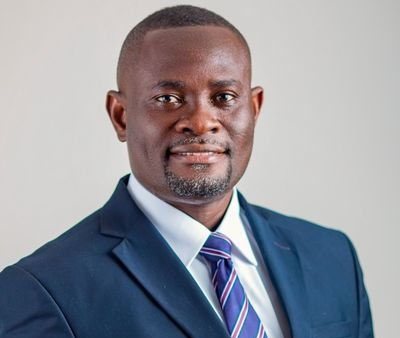John Kumah
The Deputy Minister of Finance, John A. Kumah, has thrown more light on the government’s attempt to introduce Electronic Transaction Levy popularly called E-Levy.
At a news conference at the New Patriotic Party (NPP) head office in Accra on Friday, John Kumah who doubles as the NPP MP for Ejisu said “government, in its quest to provide and expand road infrastructure, support entrepreneurship drive, provide lasting solutions to youth unemployment, combat cyber security threats, expand digital infrastructure, among others, is introducing the ‘Electronic Transaction Levy’ of 1.75% effective February 2022.”
He said that “domestic tax mobilisation efforts of Ghana is far below our peers. Indeed, according to the World Bank, tax revenue to GDP in Ghana for 2019 was 12.2% which is below Sub-Sahara Africa average of 16.5%. For South Africa, tax revenue to GDP is 26.7%, and Senegal is 16.4%. Certainly, the situation with tax mobilisation in Ghana requires urgent attention.”
Mr. Kumah said “there is a gaping infrastructure needs across the various facets of the economy. The huge mismatch between revenue efforts and infrastructure needs clearly is not sustainable if we are to accelerate the economic transformation of our country within the shortest possible time.”
He said that the potential to improve tax revenue efforts and tax administration abound in Ghana, adding “government is therefore determined to take the needed steps to steadily improve on domestic resource mobilisation without compromising its pro poor interventions.”
The Deputy Minister said that the revenue accrued from the E-Levy would help the government’s agenda in the post COVID-19 pandemic era.
He said that the E-Levy is expected to formalise transactions that take place in what he called the “shadow economy” where there is not much visibility and “help accelerate the turnaround of the dumsor economy we inherited in 2017.”
“This singular action is expected to bring in an estimated amount of GH¢6,96 billion in 2022, GH¢7.89 billion in 2023, GH¢8.92 billion in 2024 and GH¢10.09 billion in 2025,” he said.
He indicated that “the E-Levy will be implemented as a transaction fee for digital transactions done from a Mobile Money or Bank Account anytime you transfer money to someone or make a payment to a merchant/service provider. The e-levy will be paid by the sender of the transfer/payment.”
He mentioned that the levy will be assessed on Mobile Money Transfers, Mobile Money Merchant Payments, Merchant Payments Using POS or QR, and E-Commerce/Online Payments.
The Deputy Minister said however, that not all transactions will be impacted by the levy and the government has exempted bank transfers and cheques, Daily Free Limit where every user will be able to send up to GH¢100 per day without being levied which is approximately GH¢3,000 per month as well as transfers between your own accounts.
The minister also talked about the removal of road tolls, saying that the rationale for the introduction of tolls on some selected public roads was to help mobilise resources for road construction and maintenance.
“However, the policy has suffered significant bottlenecks. It includes the heavy traffic created on tolled roads with attendant lengthening of travel time. We are also seeing the negative effects of the long stay in traffic on productivity. Air pollution from vehicles around tolling points cannot also be overlooked. Clearly, the negative impact of the tolling points far outweighs the benefits government is currently deriving from them,” he said.
“This government has decided to scrap tolling on all public roads and bridges. This move, we believe, will reduce the challenges commuters face on tolled roads and bridges,” he said, adding that “all toll collection personnel will be resigned so no one will lose their job, contrary to what is being circulated.”
By Ernest Kofi Adu


